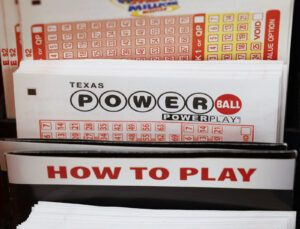
In today’s fast-paced world, many individuals find themselves caught in the whirlwind of deadlines, family demands, and societal pressures. While juggling the many facets of life, we often neglect our well-being, specifically our mental health. This neglect can result in a phenomenon that’s been growing increasingly prevalent in recent years – burnout.
Burnout is more than just an occasional feeling of fatigue or stress. It’s a state of chronic physical and emotional exhaustion. It’s like a car running on an empty tank, pushing forward but depleting its reserves. But, just like a car, our brains give out warning signals. Recognizing these silent signs is crucial, as they can be the difference between timely intervention and long-term consequences.
1. Constant Fatigue
One of the most apparent symptoms of burnout is the feeling of being perpetually tired. No matter how much rest you get, you wake up feeling as drained as when you went to bed. This isn’t just about physical tiredness. It’s an emotional and mental exhaustion that doesn’t seem to lift.
2. Cynicism and Detachment
When burnout begins to settle in, tasks or people that once brought joy might now seem irritating or pointless. This growing sense of cynicism can lead to detachment from work, friends, and even personal passions. You might find yourself being more negative and less patient, with an ever-declining motivation to engage.
3. Reduced Performance
The ability to concentrate, make decisions, or even complete simple tasks can be significantly hindered by burnout. This isn’t because of a lack of skill or knowledge. Instead, it’s the overwhelming feeling of exhaustion clouding your mind and slowing down cognitive functions.
4. Physical Symptoms
Burnout isn’t just in the mind. It manifests physically too. Common symptoms include headaches, digestive issues, and even frequent illness due to a compromised immune system. The body and mind are intricately linked; when one suffers, the other is often impacted.
5. Neglecting Personal Needs
When overwhelmed, people often let go of routines that maintain their well-being. This can be in the form of skipping meals, ignoring exercise, or sacrificing sleep. Neglecting these vital personal needs can spiral into worsening the symptoms of burnout.
6. Feelings of Ineffectiveness and Lack of Accomplishment
Remember the time when you felt proud of your achievements? With burnout, that feeling becomes a distant memory. Instead, a constant shadow of self-doubt and feelings of ineffectiveness prevail. The harder you push, the more elusive success seems.
7. Escapist Behaviors
An increase in addictive or escapist behaviors can be a sign of burnout. This might manifest as increased alcohol consumption, binge-watching television, or even overeating. These activities are often unconscious attempts to disconnect from the overwhelming realities of life.
8. Lack of Joy or Satisfaction
Once vibrant moments like a child’s laughter, a beautiful sunset, or the joy of a hobby might begin to feel muted or even indifferent. This lack of joy or satisfaction in everyday moments is a silent yet profound sign of burnout.
9. Declining Mental Health
Anxiety, depression, and feelings of hopelessness are often intertwined with burnout. Recognizing these symptoms and seeking help is not just beneficial but essential. Mental well-being plays a pivotal role in overall health, and its decline is a red flag that shouldn’t be ignored.
10. Disconnecting from Surroundings
The world might start to feel like a blur. You may feel like an outsider looking in, disconnected from experiences, conversations, and even personal relationships. This feeling of isolation, even in a room full of people, is a clear indication of mental and emotional exhaustion.
Burnout is not just a buzzword but a very real and prevalent issue. It creeps in silently, often going unnoticed until it’s too late. However, by recognizing the warning signs and seeking timely intervention, it’s possible to recalibrate and find a healthier balance. It begins with acknowledgment, understanding, and the willingness to prioritize oneself. The next step? Learning ways to effectively combat and recover from burnout. But that’s a journey for another article.

Combatting Burnout: Proactive Measures to Reclaim Your Mental Wellness
The battle against burnout is neither short nor easy, but it is absolutely winnable. With awareness and proactive measures, one can not only recover from the throes of burnout but also build resilience against future episodes. If the previous segment enlightened you about the signs of burnout, this one aims to empower you with tools and techniques to combat it.
1. Prioritize Self-Care
Self-care is more than just a trendy phrase; it’s a necessity. This encompasses regular exercise, a balanced diet, adequate sleep, and relaxation. Whether it’s a short daily meditation, a weekend getaway, or simply a nightly reading ritual, find what rejuvenates your soul and make it a non-negotiable part of your routine.
2. Set Clear Boundaries
Blurred lines between work and personal time can lead to feeling perpetually “on.” Set clear work hours, take regular breaks, and most importantly, learn to say “no.” Protecting your time and energy is paramount.
3. Connect with Others
Humans are social beings. Sharing feelings, seeking advice, or simply enjoying the company of loved ones can act as a buffer against stress. Whether it’s joining a support group, seeking therapy, or spending time with family and friends, building connections can be a salve for the soul.
4. Diversify Your Identity
Relying solely on one role (like a job) for self-worth can be perilous. Diversify your identity. Engage in hobbies, volunteer work, or other activities outside your primary role. This not only provides a break but also ensures that your self-worth isn’t tied to just one aspect of your life.
5. Take Regular Breaks
Short breaks throughout the day can help rejuvenate your mind and prevent the build-up of stress. It can be as simple as a 5-minute walk, some stretching exercises, or even a quick relaxation technique.
6. Digital Detox
In our hyper-connected world, the constant barrage of notifications and information can be overwhelming. Designate specific times where you disconnect from all digital devices. This not only reduces stress but also improves sleep quality.
7. Reevaluate and Delegate
If you’re consistently feeling overwhelmed, it might be time to reassess your tasks. Can something be delegated? Is every task necessary? Sometimes, eliminating or sharing duties can make a significant difference.
8. Seek Professional Help
If burnout symptoms persist or lead to feelings of hopelessness or depression, seeking professional help is crucial. Therapists or counselors can offer coping strategies tailored to individual needs.
9. Practice Mindfulness and Meditation
Mindfulness practices, like meditation, help anchor the mind to the present. This reduces rumination and anxiety, promoting a sense of calm. Over time, regular practice can significantly improve mental resilience.
10. Remember, It’s Okay to Ask for Help
A crucial aspect of combatting burnout is recognizing that it’s okay to ask for help. Whether it’s at work, with household chores, or simply talking about your feelings, reaching out can make the journey to recovery smoother.
In wrapping up, while burnout is a daunting adversary, with awareness, proactive measures, and support, it’s one that can be conquered. Recovery doesn’t happen overnight, but every step taken towards wellness is a step away from burnout. The key is to listen to oneself, prioritize well-being, and never hesitate to seek the support and tools needed to thrive.

FAQ
What is burnout?
Burnout is a state of chronic physical and emotional exhaustion, often resulting from prolonged high levels of stress or emotional fatigue. It goes beyond mere tiredness and impacts an individual’s ability to function effectively in their daily life. This condition has gained notable attention due to its increasing prevalence in our high-demand society.
- Burnout results from chronic stress and emotional fatigue.
- It impacts daily functioning beyond mere tiredness.
- Its prevalence has increased due to societal demands.
What are the primary symptoms of burnout?
The primary symptoms of burnout range from constant fatigue, cynicism, and detachment to physical manifestations such as headaches or digestive issues. Additionally, burnout can lead to feelings of ineffectiveness, a lack of accomplishment, and even escapist behaviors like increased alcohol consumption or binge-watching television.
- Constant fatigue, even after ample rest.
- Feelings of cynicism and detachment from work or personal passions.
- Physical symptoms like headaches and digestive issues.
How does burnout differ from general stress?
While both burnout and stress result from challenging situations, their duration and impacts differ significantly. Stress typically pertains to short-term challenges, often causing anxiety, tension, and physical symptoms like increased heart rate. Burnout, on the other hand, arises from chronic, unaddressed stress and leads to feelings of hopelessness, detachment, and a significant decline in performance or motivation.
- Stress is a short-term reaction to challenges, causing anxiety and tension.
- Burnout results from chronic, unaddressed stress.
- Burnout leads to feelings of hopelessness, detachment, and a decline in performance.
How can one prevent or combat burnout?
Preventing or combatting burnout requires a proactive approach towards one’s well-being. Prioritizing self-care, setting clear boundaries, taking regular breaks, and seeking professional help when needed are essential steps. Moreover, diversifying one’s identity, such as engaging in hobbies or volunteer work, and practicing mindfulness and meditation can serve as protective measures against burnout.
- Proactively prioritize self-care and set clear boundaries.
- Engage in activities outside primary roles to diversify identity.
- Practice mindfulness and meditation to improve mental resilience.
Is professional intervention necessary for burnout?
While some individuals may find relief from burnout through self-implemented strategies, many benefit from professional intervention. Persistent symptoms or feelings of hopelessness and depression are red flags that shouldn’t be ignored. Therapists or counselors can offer tailored coping strategies, ensuring a holistic recovery approach.
- Self-implemented strategies may relieve mild burnout symptoms.
- Persistent symptoms or feelings of hopelessness warrant professional intervention.
- Therapists offer tailored coping strategies for a holistic recovery.




